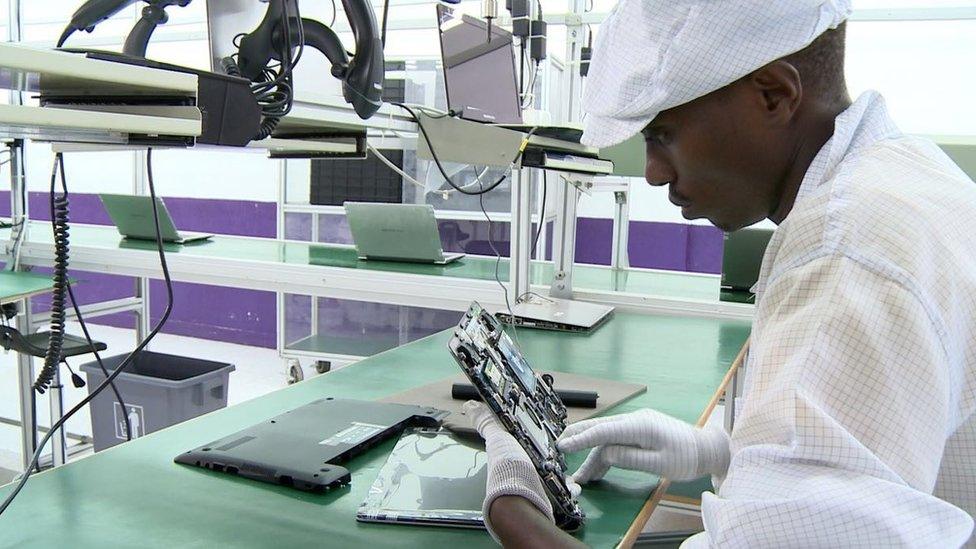The Rwandan school turning boys into feminists
- Published
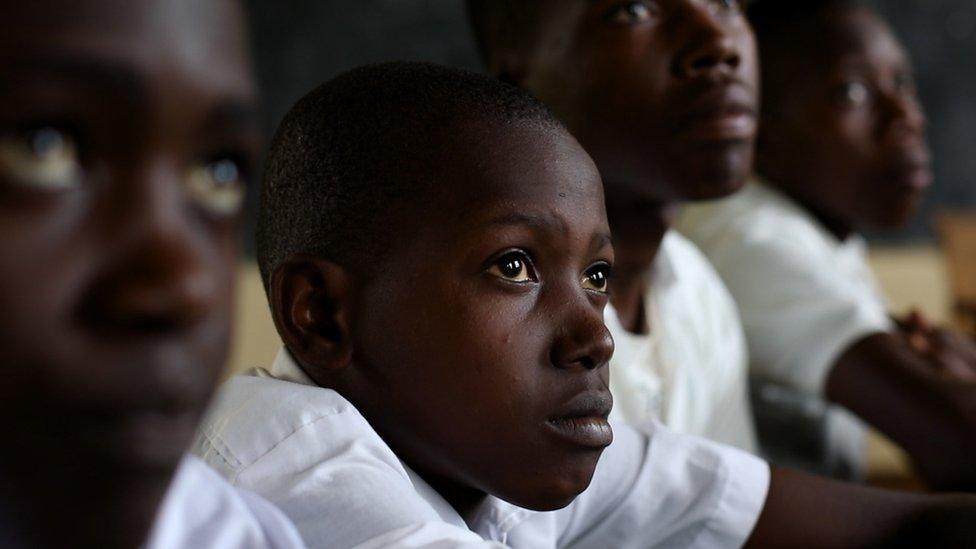
In a village outside Rwanda's capital Kigali, a group of boys are spending a rainy afternoon learning how to stop gender-based violence and the power imbalances in the #MeToo era.
While girls learn about investment to achieve financial independence and reproductive health to control the size of their families in later years, the boys are taught how to report abuse and how to respect the girls and women in their lives in a classroom next door.
These sessions take place after official academic classes are finished for the pupils at the Safe School for Girls, which is co-educational. Each weekday afternoon the boys and girls split up to learn different ways to improve the lives of women across Rwanda.
For the boys, it's a space where they are told that it is up to men to end violence. It's up to boys and men to report assaults and harassment.
"If we happen to see such violence, we report them and make sure the people who have [committed the violence] are judged," Rini Mutijima, an 18-year-old at the school, tells the BBC.
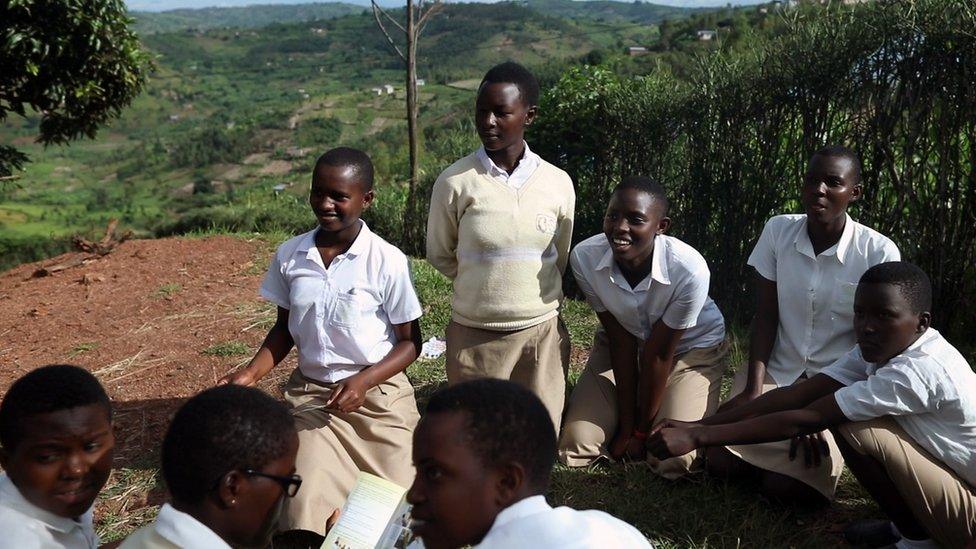
The school wants to ensure all students understand the issues facing girls and women in Rwanda
"For the girls who have this done to them, we make sure to support them, give them counselling and help them get back into society," he says.
This is happening as Western countries continue to grapple with the realities of sexual assault and harassment towards women in the wake of the #MeToo movement.
The Care International charity, which runs the Rwandan school in partnership with local non-profit organisations, believes the Rwandan school could provide some of the answers in how to tackle domestic abuse and power imbalances between the sexes.
Rape and genocide
Rwanda faces a brutal legacy of violence against women.
During the 1994 genocide, up to 500,000 women were raped during the 100-day period of bloodshed in which Hutu extremists killed 800,000 Tutsis and moderate Hutus.
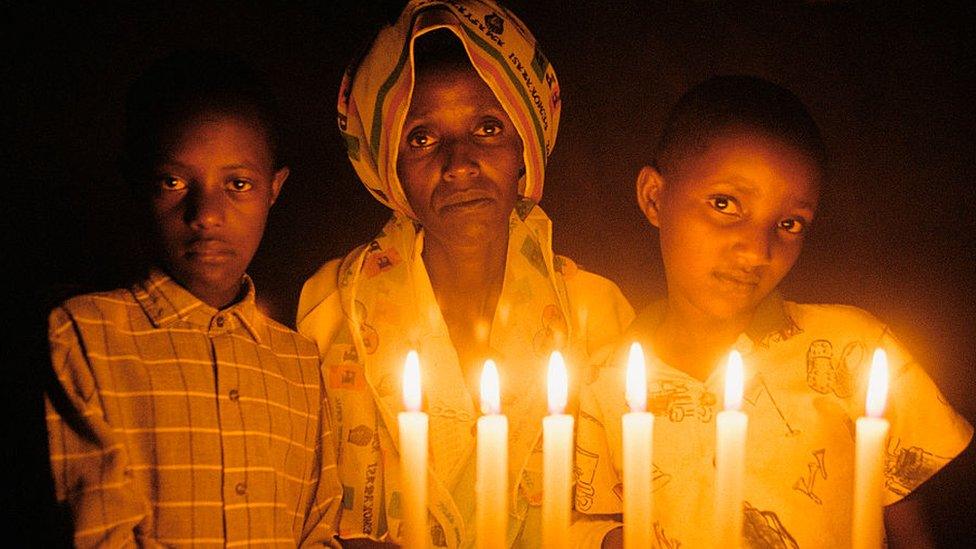
Genocide survivors have spoken about sexual abuse they suffered, including Marthe Mukandutiye (C) who was raped as her baby screamed nearby
The tiny East African country has nonetheless defied expectations in recent years to become a paradigm for African feminism.
It boasts the greatest share of women in national government in the world with more than 60% of representatives in Rwanda's parliament being women.

More on Rwanda:

The country prides itself on its commitment to women's representation at a national level, yet the reality of gender advancement is different among grassroots populations.
Approximately 27% of women in the UK and 25% of women in the US experience intimate partner violence in their lifetimes, while the United Nations estimates that figure to be as high as 34% in Rwanda.
Still, the popularity of the programmes at the Safe School for Girls, carried out at 174 schools across the country, signifies an openness to rectify the gap between women's representation and the daily lived experiences of Rwandese women.
'I can now protect my sister'
At the school in Ruhango district in Rwanda's Southern province, a different topic is tackled each day at the afternoon club.
One day the boys may learn about menstruation and the next how to prevent the financial abuse of women.
Then once a week the boys take part in a roundtable discussion on how they can end gender-based violence.
These schools across Rwanda have engaged with more than 47,000 adolescent girls and more than 19,000 boys since 2015.
For the boys, the course is a re-education that stands in opposition to cultural norms. Educators don't shy away from Rwanda's history, while focusing on current challenges girls and women face.
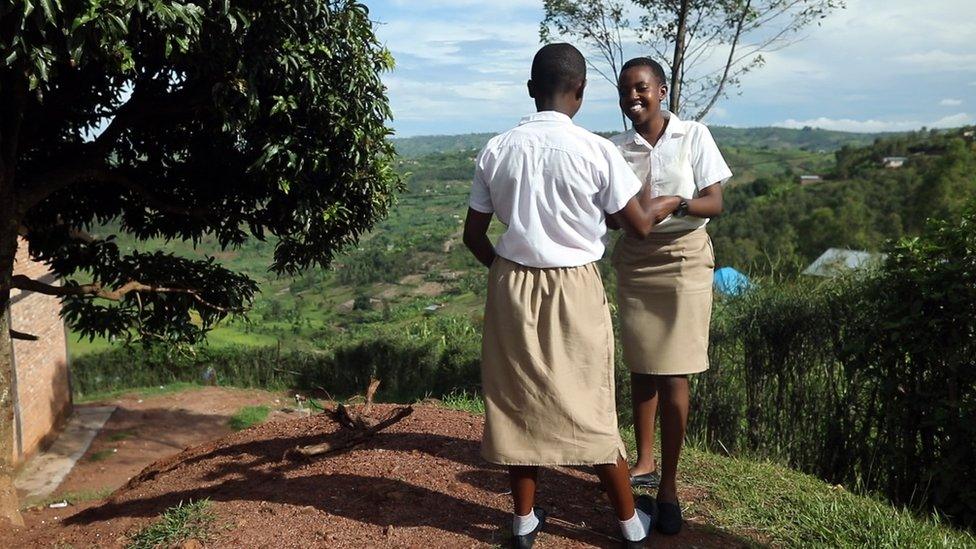
Girls at the school learn about birth control and how how to be financially independent
"We learn history," says Patience Manzi, a 16-year-old boy. "We learn these things to know the past, and it helps us to prevent others from beating their wives."
Shoffy Manishimure, another 16-year-old at the school, added: "The best thing I have learned to do is protect my sister.
"It's my responsibility as a boy to protect my sister."
Other programmes involving men have already proven successful in reducing violence against women in Rwanda.
A programme run by The Global Fatherhood Campaign and MenCare provided counselling and education for couples.
Among its participants, there was a 44% reduction in violence committed by men against their partners, external.

More about feminism and #MeToo:

The Safe School for Girls aims to stop violence before it starts by teaching young boys that girls deserve to lead lives that include education and freedom from violence.
They are taught to see the full scope of the issue, reiterating that violence takes on many forms, including emotional abuse, financial abuse and harassment, in addition to physical assault.
One way the programme finds footing is to leverage their power as young men to influence parents in a way young women rarely can - turning boys from bystanders into champions of women's rights.
"There are girls that are prevented from coming to school," says 17-year-old Robert Rwibutso.
"And it's my responsibility to advise the parents that their daughter has equal rights to her brother.
"If her brother is studying, she has to study as well."
- Published4 April 2019
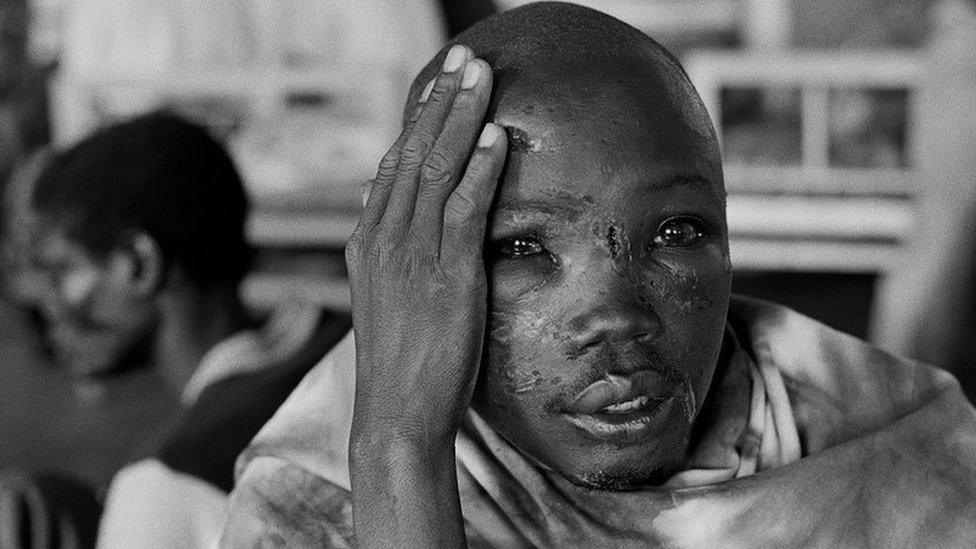
- Published15 July 2018
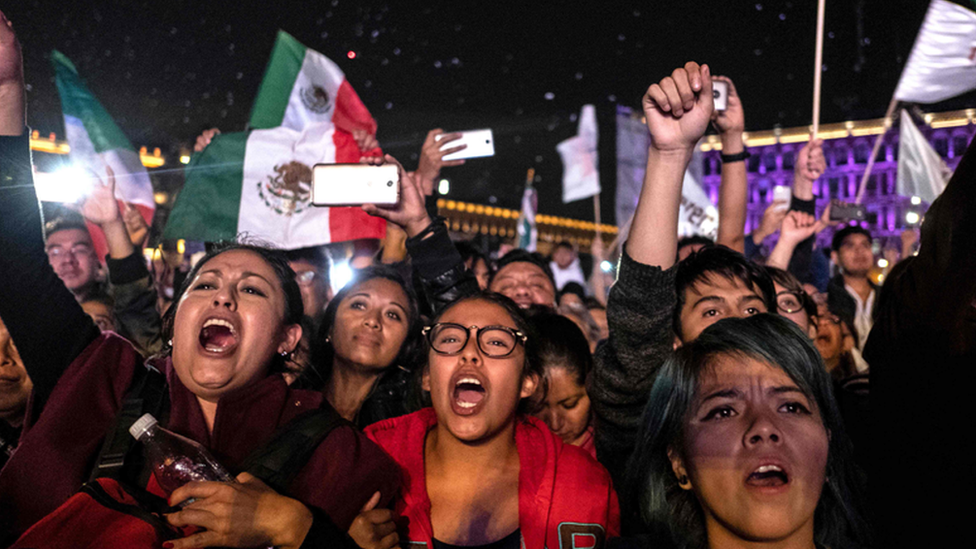
- Published5 April 2014
- Published13 May 2016
